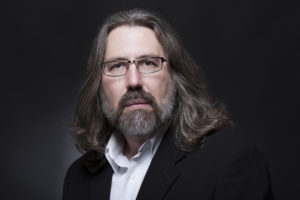Column Title: Meaningful-Faith: Words, the Word, and a Life of Substance
Column Entry: “Pondering Meaning in Unseen Good, Unseen Bad, Misunderstood Motives”
By Mark Williams, Ph.D.
Professor of Rhetoric, California State University, Sacramento
May 2024 / November 2022 / October 2022 / March 2022 / February 2022 / November 2021 / October 2021 / September 2021 / August 2021 / June-July 2021 / April-May 2021
March 2022
I consider it a moral duty to reflect deeply on the state of the world. But it may not be wise for those who are not specialists in political affairs (and certainly I am not) to become too engrossed with very many specifics—with whatever facts the latest news reports or tweets might be highlighting. We could lose our minds trying to puzzle out the intricacies of this war. Of any war, really.
But if it is a duty of ordinary folks to reflect deeply on the state of the world, what does that mean, if not detailed analysis? And here we come to one of Modernism’s messes. Modernity (correctly) championed detailed analysis of natural stuff—matter and energy and commerce and everything that can be measured and calculated—as a perfectly proper activity for the human intellect, alongside theology and philosophy and rhetoric. Modernity eventually came to (incorrectly) champion the idea that only calculation and measurement was a proper activity for the human intellect. Modernists narrowed the definition of thinking clearly, and they severed the human intellect from a large reservoir of important ideas and insights. As it turns out, those are exactly the kinds of ideas and insights we need in this moment.
Certainly, we want those with genuine narrow expertise in politics and economics to spend their time studying the details of the Ukrainian invasion. But this moment also calls for a different kind of reflection. That reflection is broader, deeper, and more pointed than any detailed focus on turns of strategy by this or that power, much less on the specific actions unraveling in confusing moments partially glimpsed by a few, and then reframed and retold in a media world that has never befriended nuance.
“To read—without military knowledge or good maps—accounts of fighting which were distorted before they reached the Divisional general and further distorted before they left him and then ‘written up’ out of all recognition by journalists … is surely an ill use of the mind,” C. S. Lewis suggested.[1]
Today’s circumstances give us a chance to see the unique virtues of the humanities. Those who have been educated properly and broadly in poetry and art and history and literatures are people have been taught to recognize specific patterns and archetypes: recurring connections that do not have proven material causes but which seem to repeatedly loom up as reliable associations wherever humans act. There are always adaptations and trendy fashions in all human actions, from movies to military invasions. But the frames beneath the latest fad and spin in all performances are remarkably stable—almost as if they were “inherent in the very germ-plasm”[2] of human action, human motive, human being in the world.
I don’t know how long Kyiv will hold out. Or how many Russian troops are actually on the ground in Ukraine. Or whether there are out-of-uniform special forces from NATO working inside Ukraine right now, organizing resistance cells and teaching sabotage techniques to locals. I do not know whether President Zelenskyy will still be free or even alive by the time this is published.
Here, however, is what I do know.
There will be some people who, having had the bad fortune of becoming a good person in dark days, will act with courage and love and they will die because of it, and we will never know about them or what they did.
Others will be trapped into an odd moment where clumsy—perhaps panicked—actions will make something right happen, and we will never know about them, either; and if we do find out about them, we are unlikely to see just how accidental their virtue was.
A few others will find themselves in moral checkmates where there will be few options given to them and none of the choices will lead to good or be good, and they will still have to act. And these, too, we will likely never hear about and if we do, we will likely jump to very wrong conclusions about them.
But there will be others who see an opportunity and seize it. They will justify indulging their desires and passions because social systems are broken. They will take what is not theirs. They will settle scores long thought forgotten between neighbors, and this too we will never know about.
I know all this not because I have inside contacts in the war zones, but because I’ve read J.R.R. Tolkien, and Franz Kafka, and Yukio Mishima, and George Orwell, and Dante, and Plato, and the Psalter, and Dostoevsky, and Lao Tsu, and Frederick Buechner, and St. Luke.
A careful, structured humanities education reveals archetypes of human action that are always hidden in plain view whenever humans make choices. There is nothing new under the sun.
But what matters even more is this. Someone in this Ukranian conflict will—someone already has—done some good by dint of courage and choice, and they died for it, and no one will ever know.
What makes that action meaningful? Ask it slowly: What makes that action meaningful?
In the end, that may be the most important question we non-experts can ponder in this present moment.
Notes
[1] C. S. Lewis. Surprised by Joy (New York: HarperOne, 2017), 159.
[2] Burke, Kenneth. Counter-Statement (Berkeley: University of California Press, 1968), 46.

